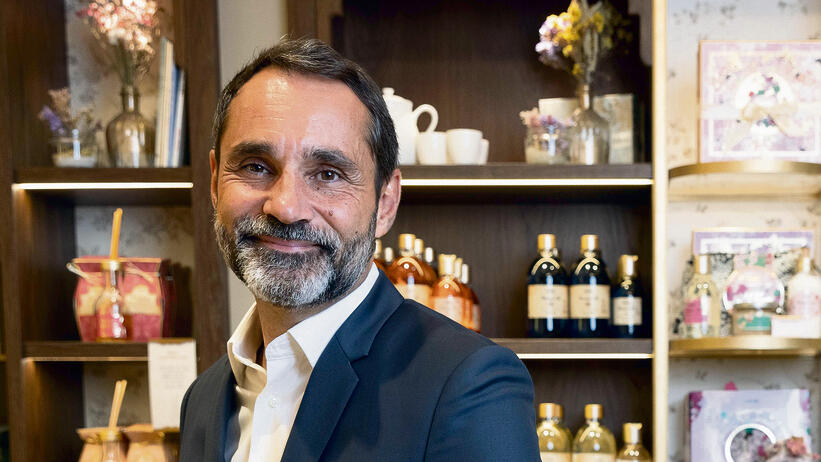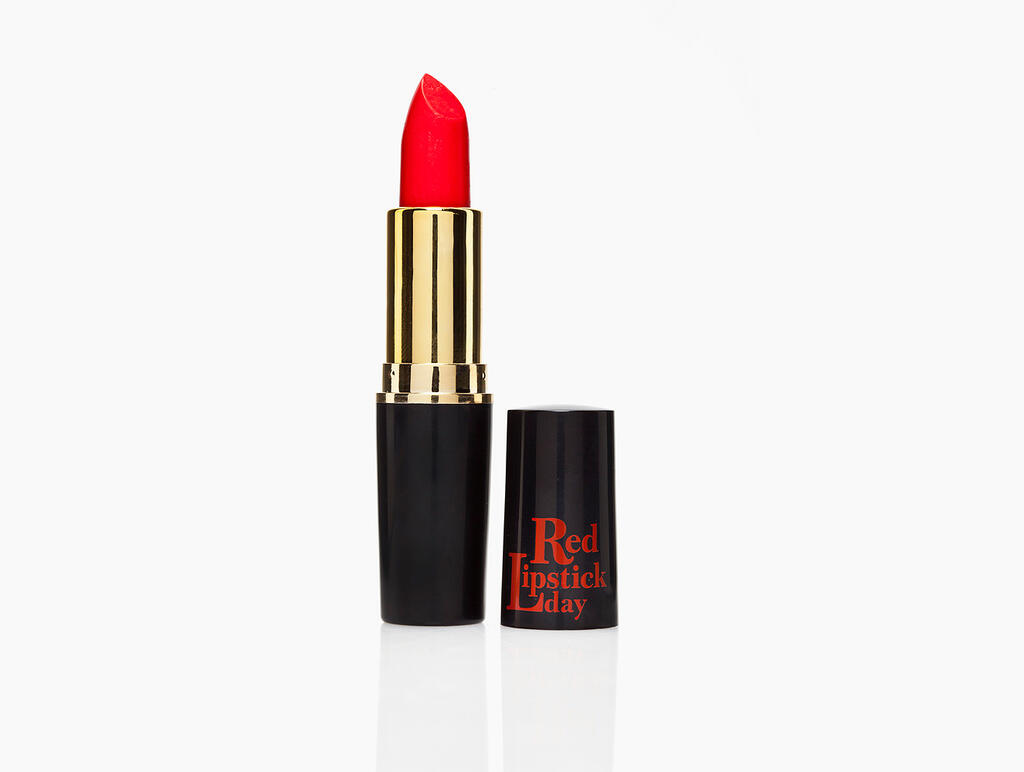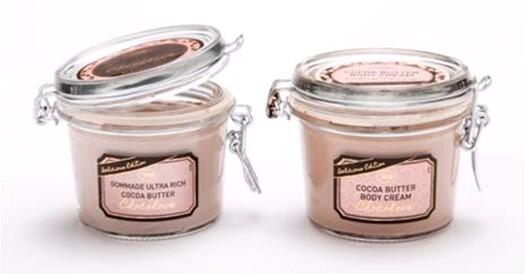Getting your Trinity Audio player ready...
The case of "Sabon," a chain of perfume stores, exemplifies the dynamics that unfold when an Israeli company is acquired by an international entity. With a foreign CEO and headquarters based in Israel, the company's primary operations extend beyond the country's borders.
Amid Sabon's reputation as a more prosperous venture abroad compared to its domestic performance, the number of stores in Israel has dwindled from its peak of 40 to 25, resulting in reduced employment opportunities for Israelis. as global sales surge and the company's factory in Kiryat Gat struggles to meet production demands, some manufacturing processes are shifted to the facilities owned by the "Roche Group" in France.
In June 2024, the iconic first store of Sabon on Sheinkin Street in Tel Aviv will undergo a transformation as it becomes the second location of a new sub-chain called SABON l'Atelier SPA. This expansion marks the company's plan to open 40 additional branches worldwide.
These new stores will offer Sabon's renowned products alongside spa services, housed in a dedicated space within the store. Additionally, the stores will feature the sale of flowers, creating a unique atmosphere.
CEO Joffrey Chartier shares photographs of the inaugural store in Tokyo, where floral elements take center stage in its design. The color palette is softer, characterized by shades of lilac and pink, in contrast to the traditional soap branches' earthy browns and creams.
The Sheinkin store, set to open as part of the SABON l'Atelier SPA sub-chain, will boast a significantly larger space compared to the pioneering Japanese store. Spanning 260 square meters, (2,800 square feet) it surpasses the 100 square meters, (1,080 square feet) area of the original location.
Chartier explains that "Sheinkin holds special significance as it is returning to its role as a tourist destination, providing an opportunity to showcase the unique experience they offer". However, it remains uncertain whether additional branches of the sub-chain will be established within Israel.
You used to have over 40 Israeli locations, now down to 25, with Laline holding at 135.
"Our approach at SABON differs from Laline's strategy. While they focus on numerous sales points and heavy discounts to drive sales volume, it can potentially devalue the brand. We, on the other hand, prioritize maintaining the integrity of our brand.
"Our goal is to expand to 500 stores worldwide by 2030, with a significant presence in Asia. Our upcoming destination is the Emirates, and we plan to expand to Mexico, Canada, Poland, and Turkey, among others.
"China, which will be our largest market until 2027, presented some challenges due to animal testing regulations. However, with recent changes in the law, we have re-entered the market initially through online channels. We anticipate opening around 50 stores in China during 2024, ranging from 20-25 square meters to larger formats of 100 square meters or more."
"Sabon shel pa'am" was founded in 1997 by two friends, Avi Piatok and Sigal Kotler Levy. Their first branch, located in Sheinkin, offered handmade soap sold by weight, using natural ingredients such as mud, shea butter, essential oils, and Dead Sea algae.
The company's unique design concept and warm store ambiance quickly appealed to its predominantly female customer base, which accounted for 94% of its clientele.
In 2003, the founders aimed to expand internationally, with a strong presence in the United States and Japan, among other countries. However, their efforts fell short of success. In 2009, they made the decision to bring in an external CEO, Ronan Zohar, who had previous experience at Unilever, Strauss, and Elite. Under his guidance, the company underwent a transformation.
In 2016, the renowned French cosmetics giant Yves Rocher, now known as the Roche Group, acquired a controlling stake (66%) in Sabon for 80 million euros. The remaining shares were later purchased in 2018 for an additional 40 million euros, solidifying the acquisition.
Chartier (50), hailing from France, comes from a family with a background in politics and entrepreneurship. His father is a prominent politician and entrepreneur, while his mother is a dedicated homemaker. Chartier himself is married and proud father of three children.
He defines himself as a Catholic but adds his grandmother was a Lebanese Jew.
Are you aware that according to Jewish halacha, you yourself are Jewish?
"Most certainly. Our family traces its origins back to Spain, and our original surname was Cohen. During the time of the Inquisition, when Jews were facing persecution and forced to leave, our ancestors made a different choice.
"Instead of going into exile during the Great Expulsion, they opted to remain in Spain and conceal their Jewish identity. They changed their surname to Arzi. However, as the conditions for practicing Judaism in secret became increasingly challenging, they eventually decided to leave Spain and found refuge in Corsica, the island that later became renowned as the birthplace of Napoleon Bonaparte.
"Interestingly enough, it is a fascinating family anecdote that my great-great-grandfather happened to be Napoleon's personal tailor, responsible for crafting his distinctive uniforms. When Bonaparte embarked on his expedition through the Middle East, including Egypt and Israel, he requested the presence of his trusted tailor to ensure the immaculate maintenance of his and his officers' uniforms throughout the journey," he said.
"The tailor agreed to join under the condition that his family could accompany him. However, there was a small hurdle: as they had fled Spain, they lacked a formal citizenship. Napoleon swiftly intervened and granted them French citizenship.
"During their travels, the family resided in Lebanon and found it to be a favorable place to settle. When Napoleon eventually decided to conclude his expedition and return to France, my great-great grandfather, the tailor, expressed his desire to remain in Lebanon with his family. And so, for several generations, they set down roots in Lebanon. In 1947, my grandmother's sister married a man named Cohen and relocated from Lebanon to Haifa. As for my mother, she married a French soldier and accompanied him to France, where they made their home."
What did you know of your Jewish heritage?
"I was aware of having family in Israel, and since I was eight years old, my brother and I would take vacations there. I always enjoyed spending holidays in Israel. However, I never learned Hebrew.
"I am fluent in English, French, and Spanish, and even have some knowledge of German. When I arrived in Israel for my current position in 2020, I made an attempt to learn Hebrew, but unfortunately, I faced difficulties in grasping the language. It seemed challenging to absorb the new linguistic concepts."
Why did Roche Group take an interest in a small Israeli soap outlet?
"Capsulated within Roche Group, there are six distinct brands within the lifestyle realm, each possessing its own distinctive characteristics. Among them, Sabon stands out as the premium brand, renowned for its exceptional product quality and service.
"The Roche Group holds a deep appreciation for the brand, recognizing its strong presence as a premium brand in Asia and its untapped international potential. What I find truly captivating about working with Sabon is its unique agenda and mindset.
"Despite being a relatively small company, Sabon demonstrates remarkable agility in decision-making and adaptation to industry changes. In contrast, larger organizations often face challenges in promptly responding to shifts and competitive forces, as the magnitude of their operations can impede swift action."
How did the COVID outbreak affect Sabon?
"I arrived in July 2020, right in the midst of the COVID-19 pandemic, and found myself unable to visit my family for six long months. However, paradoxically, the pandemic had a positive impact on sales.
"In 2020, we witnessed a 15% increase in sales, followed by a further 23% increase in 2021, and another 15% increase in 2022. I anticipate that this year will also see a similar 15% growth.
"The coronavirus outbreak has actually facilitated the growth of the home spa concept, as individuals seek ways to feel good and take care of themselves. This phenomenon aligns with the "lipstick effect," a term coined by Ronald Lauder, which suggests that during times of stress and pressure, cosmetic sales tend to rise, as people strive to enhance their well-being.
"While the demand for traditional lipsticks and makeup declined due to reduced social outings, products like ours experienced increased sales, as people sought to create a sense of well-being within the comfort of their own homes."
You head a company with pronounced Israeli roots, yet despite living here, you don't speak the language. That doesn't bother you?
"It really doesn't. When I lived in Dubai, I did not study or speak Arabic, and during my time in Hong Kong, I never took up Cantonese. I have lived in various places including the USA, Mexico, Hong Kong for four years, and Dubai for three years, experiencing diverse cultures.
"However, in Israel, I discovered something that I hadn't found elsewhere—the warmth and hospitality that are truly unparalleled. You can meet individuals you barely know and find yourself invited to their homes for a Shabbat evening, getting to know not only them but also their extended family spanning generations.
"Israel is a place of diversity, with people from different backgrounds contributing their unique experiences. It is a melting pot of influences from numerous countries, which also inspires Sabon in its own distinct way.
"When you step into one of our stores, you may find it challenging to pinpoint its origin, as it embodies a fusion of various influences—much like Israel itself. Israel is a nation where people live with purpose, knowing their goals and working diligently to achieve them. I admire how people here approach problem-solving and find innovative solutions. As an outsider observing, it is truly wonderful to witness the spirit of Israel."
Do you miss your family?
"My family decided to stay in France, primarily for the sake of our children's education. With their ages ranging from 13 to 18, and the oldest one beginning medical studies near Paris, it made sense for them to settle here.
"I personally spend around ten days a month in France, and during holidays, my family frequently visits me in Israel. In fact, my 15-year-old son will be arriving soon to participate in an internship at a soap-related establishment. It warms my heart to hear my children express that they feel safe and secure in Israel when they visit."
What about makeup? Do you plan on integrating that?
"We approach the field of makeup cautiously, as it requires a high level of consumer trust, which we currently don't have in heavy makeup products. However, our strength lies in perfumes, where we enjoy a significant level of trust.
"We have plans to introduce a new line of perfumes, slightly higher in price compared to our current offerings, with inspiration drawn from scents such as jasmine, rose, and tea.
"In addition, we see great potential for growth in the market for fragrance diffusers and facial care products. These segments are gaining momentum, especially in Asia, where the demand for scented products is on the rise.
"Expanding into airport stores is also part of our strategy. We will curate a different product mix for these locations, focusing on items like hand cream and shower gel. After Hong Kong, our next openings will be in Japan and Macau.
"Furthermore, we have our sights set on Dubai, where we aim to open a store at the airport, along with several other locations in Arab countries. These plans highlight our ongoing efforts to expand our presence and cater to a diverse range of customers."
What's the vision for the future?
"The lifestyle world is poised for growth, particularly in the beauty sector, which is projected to expand at a rate of 7% per year in 2024-2025. I anticipate significant growth in the perfume market, as well as positive developments in the hair care segment. The makeup industry is also rebounding and experiencing a resurgence following the impact of the COVID-19 pandemic.
"The Middle East, Israel excluded, is expected to see the greatest increase in demand, driven by a rise in tourist traffic, particularly from Chinese tourists. The United States, Latin America, and Asia will also witness substantial growth, while the European market is likely to be less dynamic in comparison.
"Even in the face of inflation and economic downturns, the market will continue to grow, driven by the "lipstick effect." During times of economic crisis, individuals tend to moderate their purchases of large-ticket items such as apartments, cars, and major appliances.
"However, people still have disposable income and seek ways to indulge themselves, with beauty products being an easily accessible and affordable means of self-care and pampering."




